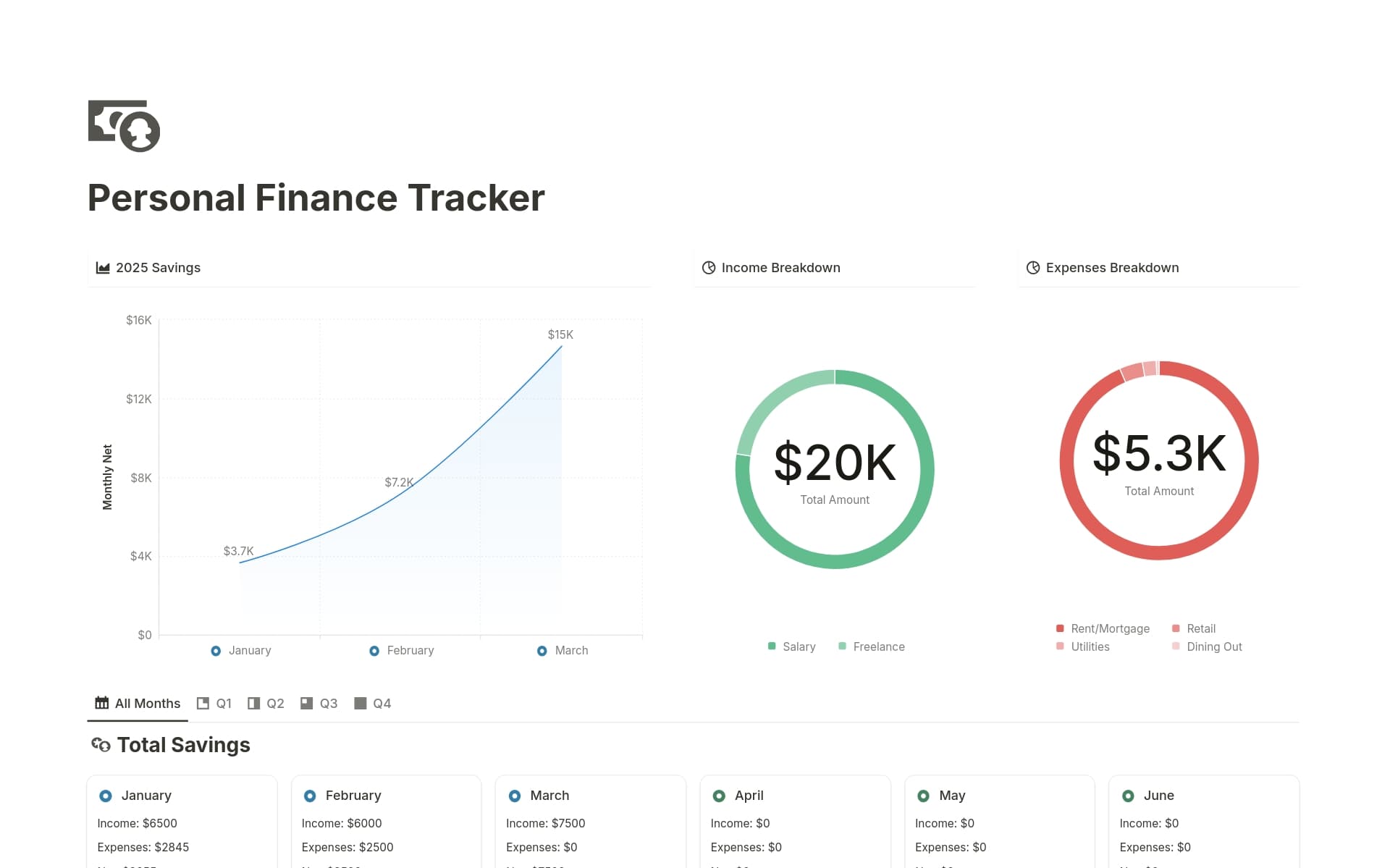Maintaining a balanced diet and ensuring proper nutrient intake is crucial for overall health and well-being. A Nutrient Tracker can help you monitor your daily food consumption, stay on top of your dietary goals, and make informed decisions about your eating habits. A Nutrient Tracker template in Notion can streamline this process by providing a structured and customizable way to log your meals, track your nutrient intake, and visualize your progress over time.
Before you start creating your own Nutrient Tracker, check out these Nutrient Tracker Notion templates below to help make it easier.
What Should Nutrient Tracker Templates Include?
Choosing the right Nutrient Tracker Template in Notion can streamline your dietary management and ensure you're getting the most out of your nutrition tracking efforts. Here are key components to look for:
Daily Intake Logs: A comprehensive template should include sections to log daily meals and snacks, making it easy to track your caloric and nutrient intake over time.
Nutritional Breakdown: Look for templates that provide a detailed breakdown of macronutrients and micronutrients, which can help you understand your dietary habits better.
Progress Tracker: An effective template should have features to track your progress over weeks or months, showing changes in your dietary habits and nutritional intake.
Customizability: The ability to customize the template to suit your specific dietary needs or restrictions is essential for personalization and long-term usage.
With these components, a Nutrient Tracker Template not only simplifies tracking but also educates and motivates you to maintain a balanced diet.
What Should Nutrient Tracker Templates Avoid?
When selecting a Nutrient Tracker Template in Notion, it's important to be aware of certain features that might complicate or hinder your tracking efforts. Here are three key components to steer clear of:
Overly Complex Layouts: Templates with too many sections or complicated navigation can make data entry cumbersome and deter regular use.
Non-Customizable Fields: Avoid templates that don't allow you to adjust the nutrient metrics. Flexibility is essential for tailoring the tracker to meet your specific dietary needs.
Lack of Integration Features: Templates should support integration with other apps or tools for seamless data syncing. Without this, manual updates become a tedious task.
Choosing the right template involves looking for simplicity, customization, and connectivity to ensure it enhances your health tracking rather than complicating it.












